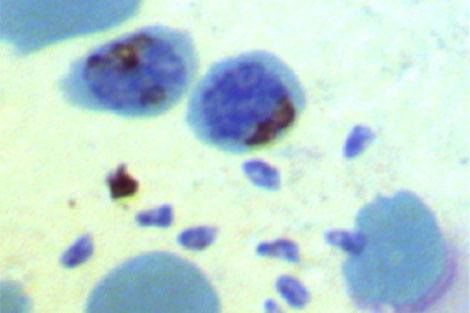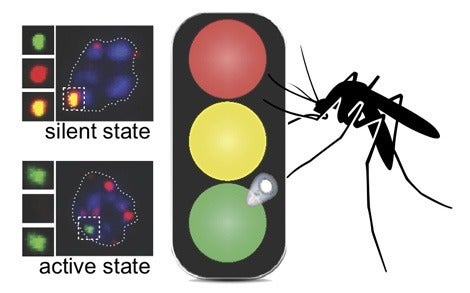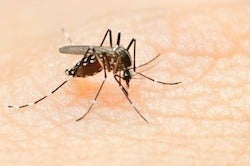Related Topics
Buckee named an ‘Innovator Under 35’
August 21, 2013 — Caroline Buckee, assistant professor of epidemiology and associate director of the Center for Communicable Disease Dynamics at Harvard School of Public Health, has been named by MIT Technology Review as one of this year’s Innovators…

HSPH and Ministry of Health of India formalize collaboration on public health issues
May 24, 2013 -- India faces daunting public health challenges. Maternal and infant mortality rates are high. Malaria and tuberculosis persist stubbornly. Noncommunicable diseases such as diabetes and cancer are prevalent and increasing. And many—especially the poor—lack good…

Monkey malaria parasite poses increasing risks to humans
May 9, 2013 -- A new study has shed light on why a monkey malaria parasite that typically caused only mild infection in humans is now beginning to cause severe disease and death—and how it has the potential…

Cell phone data mining dubbed “breakthrough technology”
Caroline Buckee’s research on mining cell phone data to track how people’s movements correlate with the spread of disease has been named one of the top 10 “breakthrough technologies” for 2013 by MIT’s Technology Review magazine. Research published…
National Public Health Week 2013 highlights public health’s big returns on investment
April 4, 2013 – National Public Health Week (NPHW), being celebrated during the first week of April, focuses on what U.S. Surgeon General Regina Benjamin calls the “extraordinary” returns that come from investments in public health initiatives. In…
Using media—and Muppets—to promote health
February 26, 2013 -- A small girl in Tanzania is getting ready to go to sleep. She is tucked safely in her bed, surrounded by mosquito netting. “Hey mosquito, I hear you, but you can’t get at me,”…

Malaria parasite transforms itself to hide from human immune system
December 13, 2012 -- In order to spread disease inside the human body, the malaria parasite must evade the human immune system—which it does remarkably well. Now, researchers at Harvard School of Public Health (HSPH) have uncovered details about…

Making the case to continue an innovative anti-malaria program
November 7, 2012 -- Funding at Risk for Program That Increases Availability, Lowers Costs for Most Effective Drugs A two-year-old pilot program that aims to protect the most effective drug for malaria from resistance, through a novel economic strategy…

Using cell phone data to curb the spread of malaria
For immediate release: Thursday, October 11, 2012 Boston, MA — New research that combines cell phone data from 15 million people in Kenya with detailed information on the regional incidence of malaria has revealed, on the largest scale…
Analyzing entire malaria parasite genome provides clues on malaria drug resistance
August 2, 2012 -- Using a more thorough type of analysis than has been used before to examine the genetic makeup of the malaria parasite, researchers from Harvard School of Public Health (HSPH), Harvard University, and the Broad…
